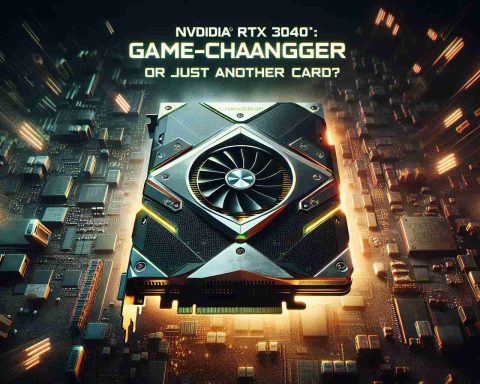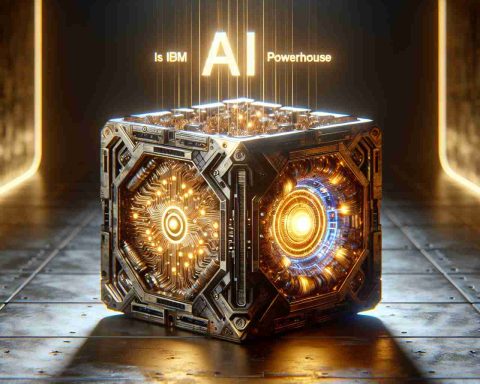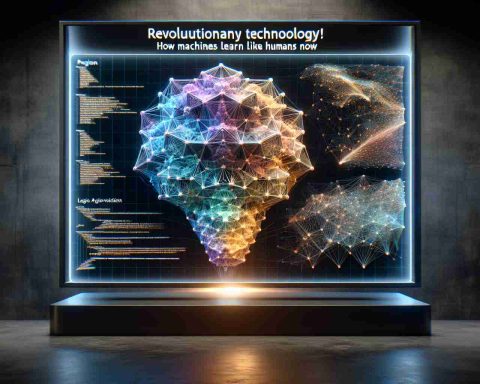In the era of rapid technological advancement, artificial intelligence is poised to transform various sectors, notably the gaming industry. Recently, Google showcased a groundbreaking engine known as GameNGen, designed to generate real-time playable games. This innovative tool has the potential to redefine the creation and experience of games.
GameNGen utilizes generative AI to produce games at an impressive speed. Unlike traditional game engines, this system does not rely on manually coded software. Rather, it employs a neural network to predict and create each frame based on player interactions and predefined events. This mechanism allows for a continuously evolving gaming environment, enhancing player engagement.
The framework of GameNGen involves training a model based on gameplay records. Initially, an agent learns to navigate within a game, and its outcomes are utilized to inform the AI model that generates subsequent frames. This method enables the construction of intricate gaming landscapes, vastly reducing the time and effort typically necessary for game development.
While the innovations brought by GameNGen are compelling, current limitations exist. Specifically, the system is tailored to simulate environments like Doom, lacking the versatility to create entirely new levels independently. Despite this, GameNGen could considerably shorten development timelines and inspire a broader spectrum of gaming genres, fostering creativity within the industry.
Beyond gaming, the potential applications of this technology stretch into fields such as autonomous vehicles and virtual reality. As GameNGen evolves, it will be intriguing to observe its impact on creative expression and innovation across various industries.
The Future of Gaming: GameNGen and Its Implications
The gaming landscape is evolving at a breakneck pace, and the introduction of Google’s GameNGen technology signals a major shift in how games are developed and experienced. While generative AI is not a new concept, its application in real-time game creation presents unique opportunities and challenges that merit exploration.
What is GameNGen’s Core Functionality?
GameNGen operates by leveraging a sophisticated neural network approach to create immersive, playable game environments dynamically. Unlike conventional engine systems that often require extensive manual coding, GameNGen harnesses gameplay data to learn and generate new content in real-time. This means that players could encounter unique gaming experiences tailored to their interactions, significantly altering how stories and challenges are presented.
What Are the Key Benefits of GameNGen?
1. Accelerated Game Development: GameNGen drastically reduces the time required for developing new levels and game scenarios. This efficiency not only eliminates bottlenecks in production but also opens avenues for indie developers to enter the gaming market with less resource pressure.
2. Enhanced Player Engagement: With the ability to generate scenarios that evolve based on player decisions, GameNGen could keep players engaged for longer periods by continually providing fresh experiences.
3. Democratization of Game Creation: This technology can empower aspiring developers by simplifying the game creation process, enabling those with limited programming skills to bring their ideas to life.
What Challenges and Controversies Are Associated with GameNGen?
1. Quality Control: The unpredictability of AI-generated content raises concerns about quality assurance. Players may experience poorly designed levels or inconsistent gameplay mechanics, questioning the reliability of using AI in core game elements.
2. Intellectual Property Issues: As GameNGen generates content based on existing games, it raises questions about the ownership of AI-crafted environments. Legal frameworks regarding copyright could become increasingly complex as developers use this technology.
3. Loss of Human Touch: Critics argue that the reliance on AI in game design could lead to a homogenization of gameplay experiences. Unique creativity and artistic expression, which often come from human developers, might suffer if the industry leans too heavily on AI solutions.
What Are the Future Implications of GameNGen?
As GameNGen continues to evolve, its implications for the future of gaming, as well as for adjacent industries such as education and simulation, are profound. The use of AI in creating adaptive learning environments could revolutionize educational gaming. Moreover, the entertainment sector might see significant shifts in how stories are told, as dynamically generated plots could cater to the preferences of individual viewers or players.
Advantages and Disadvantages of GameNGen Technology
Advantages:
– Time efficiency in game development.
– Personalized gaming experiences.
– Opportunities for increased innovation in game design.
Disadvantages:
– Potential decline in content quality.
– Legal ambiguities regarding intellectual property.
– Possible dilution of creative artistry in gaming.
In conclusion, while GameNGen presents exciting opportunities for revolutionizing the gaming industry, it also poses significant challenges that must be navigated. The balance between leveraging technological advancements and maintaining the essence of creative expression will be critical as we move into the future of gaming.
For more information about the advancements in gaming technology, you can visit Google.


















